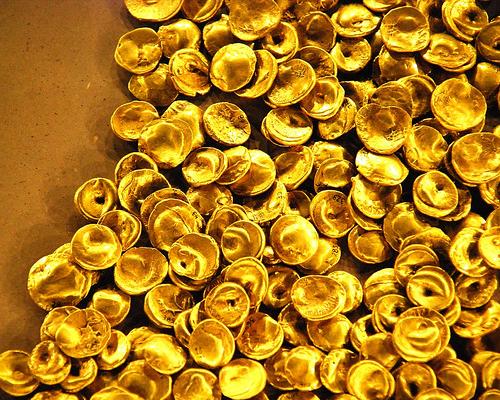
Commodities can be traded on either spot markets, or in the form of futures. Spot markets are those in which the commodity is traded immediately in exchange for cash or some other good. Futures are standardized contracts among buyers and sellers of commodities that specify the amount of a commodity, grade / quality and delivery location. Commodity trading with futures contracts takes place at a futures exchange and, like the stock market, is entirely anonymous.
For a lot of people trading in commodities is as good as trading in the stock markets. It has the same amount of uncertainties and risks associated with it. It also has the same if not more amount of profits to be made from it. That is why knowing the basics of commodity trading are essential before you dabble in its nitty-gritty.
What is commodity trading?
Commodity markets are markets where physical raw or primary products such as gold, agricultural products, precious and base metals, energy commodities etc. are exchanged. These raw commodities are traded on regulated commodities exchanges such as National Commodity and Derivatives Exchange Limited (NCDEX) and Multi Commodity Exchange of India (MCX), in which they are bought and sold in standardized contracts.
Why should you opt for commodity trading?
Commodity market is a promising avenue for your investments offering huge opportunities and enabling you to diversify your portfolio. With the least margin requirement being as low as Rs 5,000, it is suited for small investments also.
It also enables you to have more control over the costs associated with trading. For example, if you have traded in gold as a long term investment, there might have been times when you would have been worried about the protection, transportation and purity of gold you are investing in. With commodity trading, you can deal in gold futures, where just like stock futures you do not have to actually buy the gold and keep it somewhere. Instead, buying gold futures you can eliminate the need to worry about these things and concentrate on maximizing your profits.
The potential for attractive returns is probably the most obvious reason to go in for commodity trading, but it isn’t the only factor. Commodities also offer investors other significant benefits, including enhanced portfolio diversification and a hedge against inflation and event risk.
What are Commodity Futures?
Commodities can be traded on either spot markets, or in the form of futures. Spot markets are those in which the commodity is traded immediately in exchange for cash or some other good. Futures are standardized contracts among buyers and sellers of commodities that specify the amount of a commodity, grade / quality and delivery location. Commodity trading with futures contracts takes place at a futures exchange and, like the stock market, is entirely anonymous.
How does the trading work?
Commodity trading works exactly like stock futures. When you buy a ‘Futures’, you don’t have to pay the entire amount, just a fixed percentage of the cost. This is known as the margin.
For example:
You decide to buy 100gms of gold futures (which is the minimum contract size) for a certain price. You have to pay a certain amount of margin set by the commodity trading exchange you are trading on, which would be a lower amount than the original price for 100 gms. The next day the price goes up by Rs. 1000. Rs. 1000 would be credited into your account. The following day it dips by Rs. 500. Rs. 500 is debited from your account. Once you feel that the amount that you have already profited with is not going to change, you can choose to sell the futures. This is simplest way to explain commodity futures trading.
What are the Dos and Don’ts of Commodity Trading?
| DOs | Don’ts |
|
|